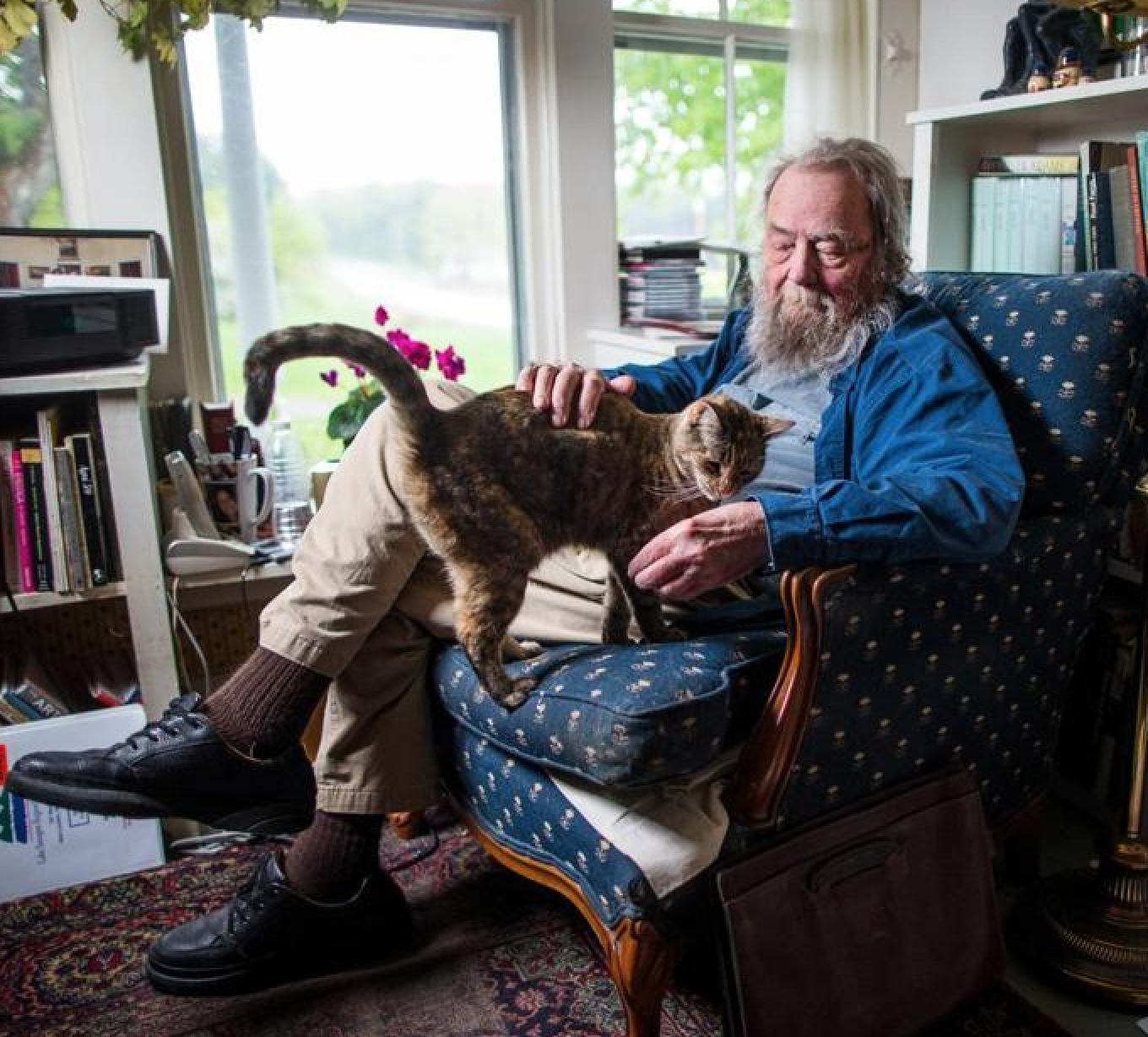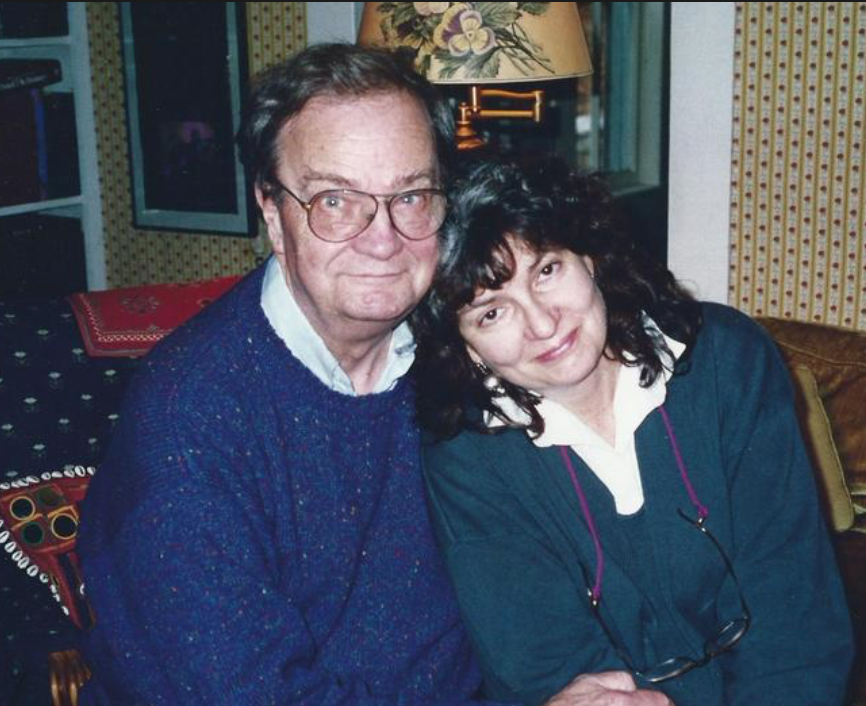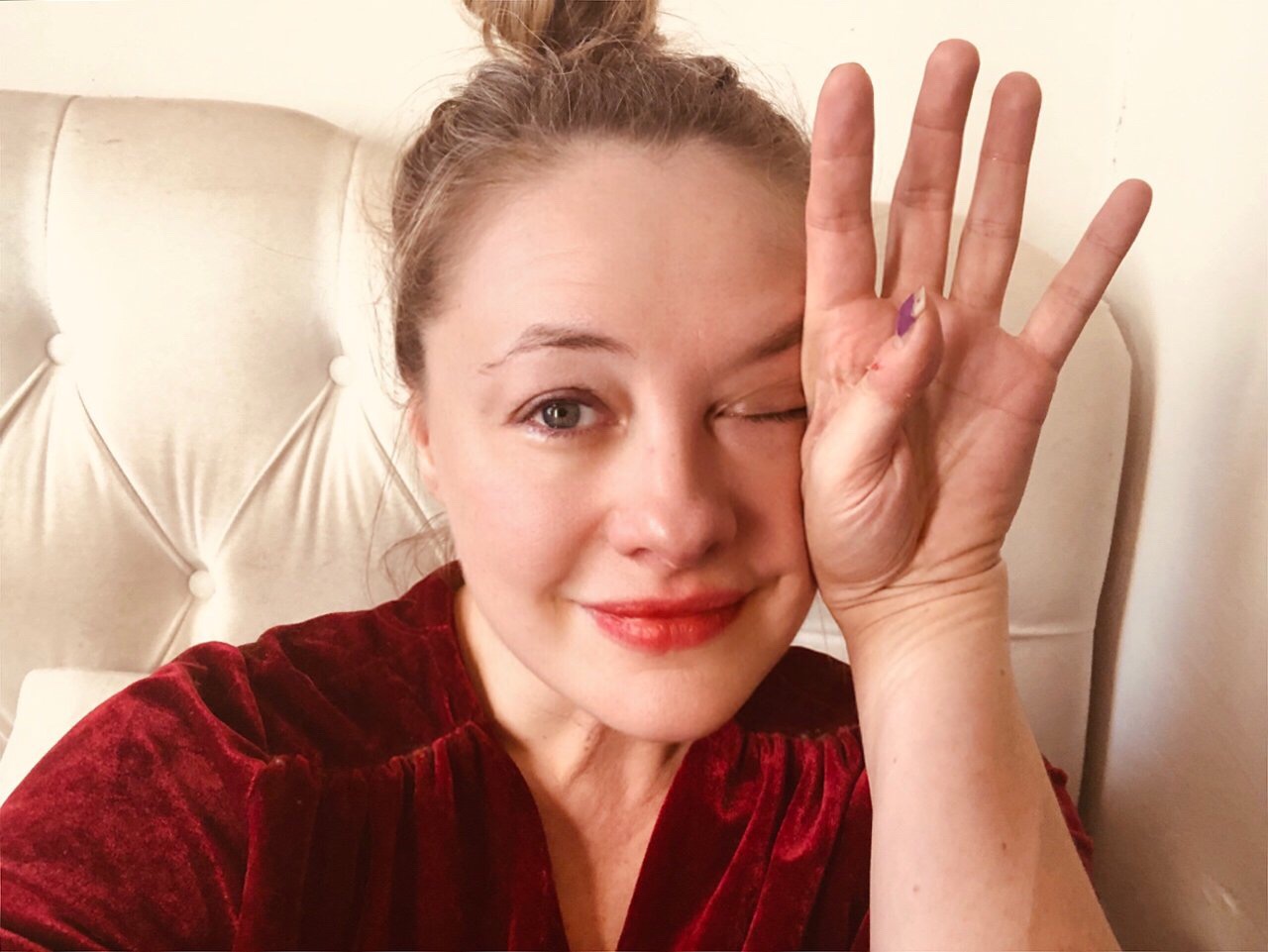 I woke thinking about Donald Hall, who died last June at the age of 89 after living a very fine life as a poet and a New Englander. There are details of his biography that make me wince, especially his string of very, very young girlfriends. That string included his second wife, the poet Jane Kenyon, who was decades his junior and whom he met while she was still his student.
I woke thinking about Donald Hall, who died last June at the age of 89 after living a very fine life as a poet and a New Englander. There are details of his biography that make me wince, especially his string of very, very young girlfriends. That string included his second wife, the poet Jane Kenyon, who was decades his junior and whom he met while she was still his student.
Though it’s unmodern to think so, Goddess is not always concerned with such details, and in this case Jane and Donald’s love helped them develop as humans and writers. He was wildly proud of his wife’s artistic development, which outstripped his before she succumbed to a voracious cancer a few weeks shy of her 48th birthday.
The exact age I am today.
The two lived in small rural houses–no children came of that marriage–and for a time had so little money that they boiled water over a fire, made do without electricity, and lived without any heat save their woodstove. While together, they did not teach nor entertain much. They tended to their animals, explored the New Hampshire countryside, read. And wrote. Their’s was a true artists’ existence.
Before they got together, Hall had been a drunk, and in recovery he paid the piper with diabetes and alcohol-related cancers. Because of his ailments and relatively advanced age, the two assumed he would die first. Instead, he attended to his wife’s body as it consumed itself with the indignities, pain, remission, and swift and ruthless return of terminal cancer. It is possible he had never taken care of anyone before her illness; his mother was still alive when Kenyon died and in those days men were not expected to nurture so much as provide.
And artistic sons of old Mayflower families were not even expected to provide, much like Jewish sons entrusted with talmudic studies.
So it was true love that deepened Hall, because he had the good grace–the sweetest lesson of Christianity–to succumb to love’s harshest lesson when it arrived.
Loss.
Of living with Jane’s cancer he wrote:
snow melts and recovers but nothing
without thaw although cold streams hurtle
no snowdrop or crocus rises no yellow
no bright leaves of maple without autumn
no spring no summer no autumn no winter
no rain no peony thunder no woodthrush
the book is a thousand pages without commas
without mice maple leaves windstorms
no castles no plazas no flags no parrots
without carnival or the procession of relics
intolerable without brackets or colons
Though Kenyon died while I was studying literature at college, I didn’t become aware of either poet until I also was deepened by grief. By then, I was in my 30s and had gone by myself to Cape Cod for my birthday as I often do. Because I already was lovelorn, January’s scant sunlight felt almost too sad to bear, and at dusk I walked into a book store–literature being my greatest guardian angel–and as if guided by the Goddess herself walked straight to Kenyon’s slim volume and pulled it off a shelf. The shop was the sort of cozy species, now endangered, where the proprietress  encouraged you to peruse the wares. So I plopped in an armchair by a fire and opened to these lines:
encouraged you to peruse the wares. So I plopped in an armchair by a fire and opened to these lines:
Let the light of late afternoon
shine through chinks in the barn, moving
up the bales as the sun moves down.
Let the cricket take up chafing
as a woman takes up her needles
and her yarn. Let evening come.
Let dew collect on the hoe abandoned
in long grass. Let the stars appear
and the moon disclose her silver horn.
Let the fox go back to its sandy den.
Let the wind die down. Let the shed
go black inside. Let evening come.
To the bottle in the ditch, to the scoop
in the oats, to air in the lung
let evening come.
Let it come, as it will, and don’t
be afraid. God does not leave us
comfortless, so let evening come.
It helped so much.
When I learned how Kenyon and Hall’s union had granted them a nest in which they could birth their best work, I felt even more comforted. For it clarified what I truly desired: an artists’ coupling. A partner on the page as in life.
After Kenyon’s death, Hall never remarried. He always had ladies–reading between his lines, I got the sense he continued to plunder the resources of well-intentioned women–but in his work and interviews Jane remained his wife.
I studied his New Yorker essays with great enjoyment even as they grew more curmudgeonly. In the long shadow of his young wife’s demise, he wrote of aging as a blessing as well as a curse, and I appreciated his poet’s eye trained on both. I followed him and felt him, too; without squinting, I could see him groping through his drafty New Hampshire house, cleaving to his solitary routines as long as he could–reading, writing, fixing eggs on a rusty old stove. I sent him light, and cried when he died, though I felt Jane greeting him with joy.
Which brings me to last night.
I went to bed bluer than I’d been all month, then dreamed of them together, lying on a Japanese  mat in a straw house somewhere warm and quiet. Long limbs entwined, plain faces buried in each other, bright minds shimmering in their sleep.
mat in a straw house somewhere warm and quiet. Long limbs entwined, plain faces buried in each other, bright minds shimmering in their sleep.
I’d forgotten the dream until just now, but woke with him on my mind all the same. I was thinking of his description of poetry as “schools for feeling,” and of the many intellectuals who fool themselves into believing their minds crown (ill-conceived) pyramids. The intellectuals who deny the importance–maybe even the existence–of body and spirit.
Only poetry can transcend such a hegemony.
Hall knew this. The two of them lived this.
But why did they come last night?
I suppose because as the dust settles, I’m still longing for my recently departed lover, the Legend. For the creative curiosity we shared, for how it re-ignited my oldest, dearest dream of a romantic and creative partnership.
This is the most alone I’ve been in decades, and mostly I don’t mind. But I’d be happier on this NYC island with a kindred spirit, and I finally admit it. I cried myself to sleep knowing I’d spend the next day alone. Because I still could still feel his arms wrapped around me and because I kept flashing on the two signs I’d carefully lettered on my bulletin board 15 years before:
Give me great love from somewhere, else I shall die.
and
No woman over 30 ever died of a broken heart.
So when I opened my eyes this morning, I was not surprised to see Donald’s homely, hard-won face: kind and indignant, stubborn and calm. He was so present I could smell him: stale perculator coffee, damp wool, pipe tobacco, something sour and old-mannish but also sweet like freshly cut grass.
A lifetime as an intuitive has taught me that when you can not just see but smell the deceased, they are truly present. And so I gazed upon the recently passed-over Hall, come to call on the loneliest day of a very lonely year.
He blinked twice, the international feline expression of love. I blinked back.
He pointed at my phone then, so I picked it up and saw two missed calls from the Legend–the first time he’d called since we’re broken off things the month before–and a text saying he was in a jam. The timing shocked me out of my self-righteousness, so I wrote back immediately though still did not call. I was afraid to hear his voice, which is what I miss most.
Mostly.
A few hours, my former lover got back to me. He’d left his keys in his apartment, he wrote, and could find no locksmiths in the earliest hours of Christmas . “I’m at a hotel,” he wrote.
. “I’m at a hotel,” he wrote.
I did not dare ask him to rescue me from my loneliness. Nor did I dare ask how he was doing. Instead, we exchanged niceties for the first time in months, and I put the phone back down and wept.
I’ve lived too long with practical magic to dismiss serendipities. Doing so pisses God off, to paraphrase Alice Walker at her clearest.
For while nothing, not even Hall, not even Providence itself, could rescue me today from today’s sadness, now I know I’m not alone.
God does not leave us
comfortless, so let evening come.
